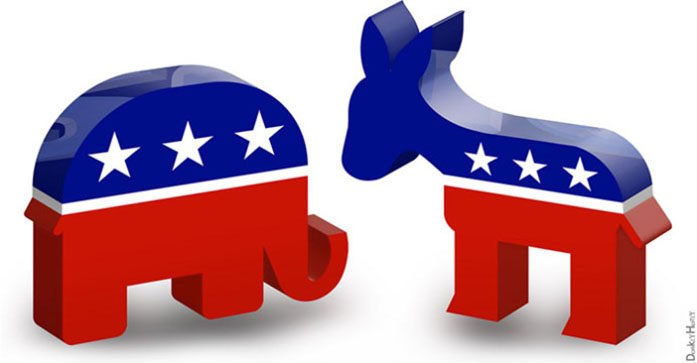Many political pundits seriously question whether Iowa deserves to have the first shot at selecting the next president. Iowa’s profile doesn’t even come close to being representative of the USA. Three examples: Iowa is 96 percent white, Iowa’s population rank is 30th (Puerto Rico is larger than Iowa), and visceral comments by Rep. Steve King, R-Iowa, have made virtually all Americans cringe and embarrassed.
Only 19 percent of card-carrying Republicans have participated in the past two Iowa caucuses; registered Democrats have averaged a 23 percent turnout. Worse yet, only 13 percent of Iowa’s largest group of registered voters, no-party independents (36.3 percent), participated.
Iowa has “closed caucuses,” which means that only declared Republicans and Democrats may participate. No-party independents can only participate if they declare Demcratic or Republican prior to attending a caucus of that party. The no-party independents can re-declare their independent status on the day after the caucuses. What a mess Iowa’s closed caucuses have created. This may be the greatest form of hypocrisy in Iowa’s voting process.
The results of Iowa’s caucuses should be highly questioned by the American public for their validity and reliability in selecting the next president.
To better understand why people shouldn’t pay much attention to Iowa’s caucuses, let’s reflect on the 2008 and 2012 presidential races. Mike Huckabee won Iowa’s Republican caucuses in 2008. The voter numbers reveal that he attracted the support of a mere 2 percent of Iowa adults.
Huckabee won the Iowa caucus because he was a Christian conservative and those Bible-thumping followers saw the caucuses as similar to going to church. You know what happened to the rest of Rev. Mike’s 2008 campaign.
Rick Santorum, another Christian-conservative Republican, won the 2012 Iowa caucuses. The Christians flocked to the Iowa caucuses as if it were a Wednesday night revival. You also know the rest of the story of Santorum’s post-Iowa campaign.
What are the current rankings of Huckabee and Santorum in the 2016 presidential Republican race? Huckabee is No. 10 and Santorum is No. 11, with only Jim Gilmore having a lower national ranking.
Don’t be surprised if Christian conservative Ted Cruz wins Iowa’s Feb. 1 Republican caucuses. While Iowa Christian conservatives may be the most dedicated Republicans to attend caucuses, they do not represent the majority of Iowa Republicans nor Republicans in the remaining 49 states.
Iowa’s first-in-the-nation closed-caucus process is not warranted.
If Iowa’s Feb. 1 Republican and Democratic caucus-attendance record doesn’t improve, Iowa should no longer have the privilege of being the first-in-the-nation presidential selecting state.
The Democratic and Republican National Committees must make all future caucus/primaries open to ALL registered voters regardless of their political preference.
DNC and RNC need to collaborate and agree that the state with the largest percentage of registered voters participating in the 2016 caucus/primary presidential election will get the privilege of having the first-in-the-nation caucus/primary in 2020. The second-most voter participating state in 2016 gets to host the second caucus/primary in 2020; and so on. And, the rate of caucus/primary voter participation per state in 2020 will determine the state-by-state order of the 2024 caucus/primary process.
Sadly, the 2020 presidential caucus/primary dance card will start on Jan. 21, 2017, one day after the 45th president is inaugurated. For future presidential selection validity and reliability purposes, calling on the DNC and RNC for significant caucus/primary reform is mandatory.
Steve Corbin
Professor Emeritus of marketing, University of Northern Iowa



